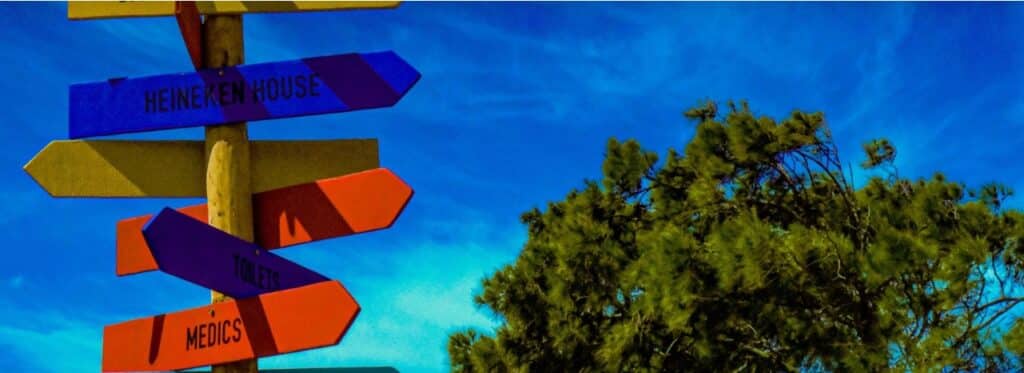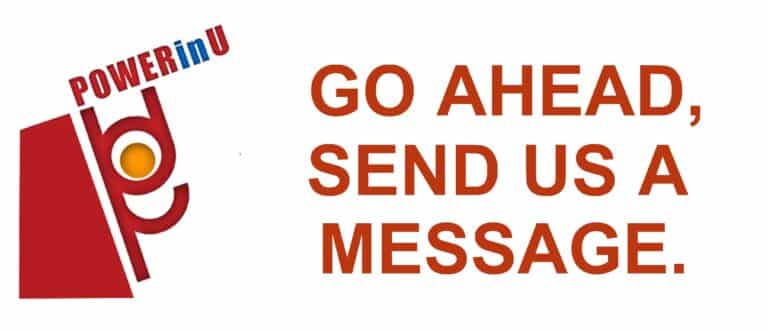This article has been reposted with permission from N.E.W.S.® Global. The original article can be found here.

by Aviad Goz, Founder of N.E.W.S.®
In research that I conducted around 1998 – 2003 I was interested in the question:
“Why do individuals, teams and organizations get stuck on their way to fulfilment and realizing their potential?”.
Most studies and books are dedicated to studying success. I decided to study failure. 1% of the population succeed in modern terms. The other 99% do not. That is a good reason to research the majority and understand what goes wrong for them. I conducted this study with numerous organizations, teams and individuals that I trained, coached and facilitated.
As a result of the study, I realized that there are four groupings of reasons for “Being stuck”, and therefore not realizing the full potential of what they could have become.
- Not being clear about future direction, strategy or vision.
This “stuck situation” creates a set of syndromes of not being directed or focused towards any particular future.
By analogy, the driver of a car does not know where they are heading. This was defined as “Being stuck in the North”. - Not having enough motivation and drive to achieve their goals and vision. This creates a lack of energy and therefore fatigue and burn- out.
By way of analogy, there is not enough fuel in the engine for the journey to be taken. This was defined as “Being stuck in the East”. - Not having planning and execution capacity to achieve their North. This creates lack of focus, very slow or no movement and incapability to achieve desired results.
By way of analogy this is like a driver who does not have a road map or milestones to follow. This was defined as “Being stuck in the West”. - Having limiting beliefs, comfort zones and fears that limit the progression to the desired North. This creates stagnation, procrastination and being stuck within current or historic limits.
The analogy here is a driver that sets on his way, whilst not releasing the hand- break. The engine is in full mode, yet no progression is made. This was termed “Being stuck in the South”.
The four groupings of reasons for “Being stuck” created a compass.
This compass makes it possible to analyze current stuck situations and navigate forward successfully from there. The four directions are interrelated and affect each other in multiple ways. This became known as the “NEWS Compass®“.
This compass has helped many thousands of leaders, teams and organizations to navigate successfully through change and challenging situations.
The last fifteen years have been dedicated to working with the concept of “Being stuck” and the NEWS Compass®. A whole network of professional trainers, coaches and facilitators was established in over forty countries to use the Compass to help organizations, teams and leaders around the world navigate successfully.
A decade and half later we know that using this Compass around the world has helped release many from stuck situations, changed the way teams work together for the better, and helped create great organizations.
As I observed all this development and evolving world trends, I felt that something else was still missing. Something that would explain a deeper level of “being stuck” that affects many leaders, teams and organizations.
In a recent contemplation about the concept of being stuck, I realized that there is another major reason why individuals, teams and organizations do not fulfil their natural potential and “Greatness”.
They are “Stuck in the center”!
They are disconnected from any larger picture beyond self and family or tribe. In this case family and tribe are merely extensions of the self.
Being self – centered can come about in many ways, as an example, here is a real story: George was a very ambitious team leader in the R&D department of a large Hi- Tech company. His ambition drove him to set very high and not realistic goals for his team.
He crafted the goals by himself, not even disclosing them to his superiors. The idea was to create new features for their product that no one before him had even thought about. George’s main intent was to exceed all expectations, be recognized for his genius and eventually be promoted. After two years the disastrous outcomes became obvious. His team collapsed from the pressure and the overburden of his ambition.
Those talents that could leave went away, leaving behind them a mediocre beaten team with a deep sense of failure, mistrust and victim mentality. The goals that were achieved were totally irrelevant to the strategy of the organization and caused major losses to the department. Customers were furious at this non- aligned R&D development and the new unnecessary features and quit working with the company. His boss had to resign for not supervising George properly. George had to leave his job – devastated and became known as a failure within the industry. And there are so many other examples, that I am sure you can see all around you.
In my work with leaders I find these kinds of phenomena very common. Most do not actually see what is wrong with this self-centered, self-glorifying attitude and cannot see any options beyond it.
If we take our closest reference – the human body, we will discover that all organs are interrelated. They are all part of one working organism. Playing their part in the whole system is what makes the whole-body work and prosper. This is true about any cell in our body. They are all a contributing part of a larger context.
There is however one exception. Sometimes some cells lose their recognition of other cells around them and their part in the greater context of the body. They then start to multiply intensively, grow beyond proportions and create their “own empire”.
Science calls them “Cancer cells”. Whilst those cells might “gain” in the short term and build their own tumor kingdoms, they finally annihilate the whole body, therefore, bringing eventually to their own demise.
When individuals, teams or organizations lose sight of the larger context in which they operate, they become cancer-like. They might reap short term gains, but they will destroy the system that they are part of and eventually themselves.
This is not a metaphor. This is a reality I have observed in many organizations and teams. This disconnection beyond self and its extensions brings organizations down. It creates mega losses of time and resources. It creates conflicting cancer-like strategies and behaviors.
It does not allow the larger team, organization or even the environment to succeed in fulfilling their potential.
There are two problems in perceiving this realization:
- The childish approach: In the short term, the quick “gains” from a self- centered approach are very tangible and rewarding. It takes a long- term mature view beyond instant gratification to move past this limiting perception. This is in fact the difference between a child and a responsible adult. When a five-year-old child is self-centered, it is a natural part of his development. When a team leader or a CEO has remained the same forty years later, something has gone wrong – and this is so common.
- The current hero: We live in a culture that makes heroes out of egocentric short-term profit takers. It is not easy to rise above this current cultural programming and its rewards.
So, it seems that the origin of this “stuck situation” is rooted deeply in our current self-centered culture. This disconnect runs very deep and appears in many forms between people, societies and even in the relationship with our environment.
The larger context is what gives people, teams and organizations their actual reason to exist – raison d’être.
Losing sight of that larger context and pursuing self-centered goals only is short lived and self-eliminating in the long run. This is why this kind of “stuck situation” is defined as: “stuck in the center”.
Being stuck with no recognition and contribution to a larger context and operating a cancer-like pursuit.
The work to help people, teams and organizations go beyond this “stuck in the center” situation is very specific.
It is done by helping them re-member the larger context. This can be done by exploring three rings of the growing contextual perception of their role and contribution in a larger context.
The larger context can be the whole team, the whole organization, the whole community, the country where they operate, or even the whole planet that we all inhabit together.
Pause a moment. Look at yourself, your team, your organization.
Where are you disconnected from a larger context?
Where do you act in a cancer-like manner?
And what does that generate for you? For your colleagues? For the larger organization or society?
Where will it take you and all of us in the end?
“The earth is not the center of the universe”. People were denounced and tortured when they discovered that the long-standing paradigm of the earth as the center was mistaken. Nowadays it is common knowledge. No person, team or organization is the center of the universe. They are all part of a larger context – a contributing part or a disruptive part. This truth is yet to be discovered by many.
It is time to review your own position in relation to this principle.
As more people discover this truth and go beyond “being stuck in the center”, we will have much healthier and prospering people, teams, organizations and societies.

